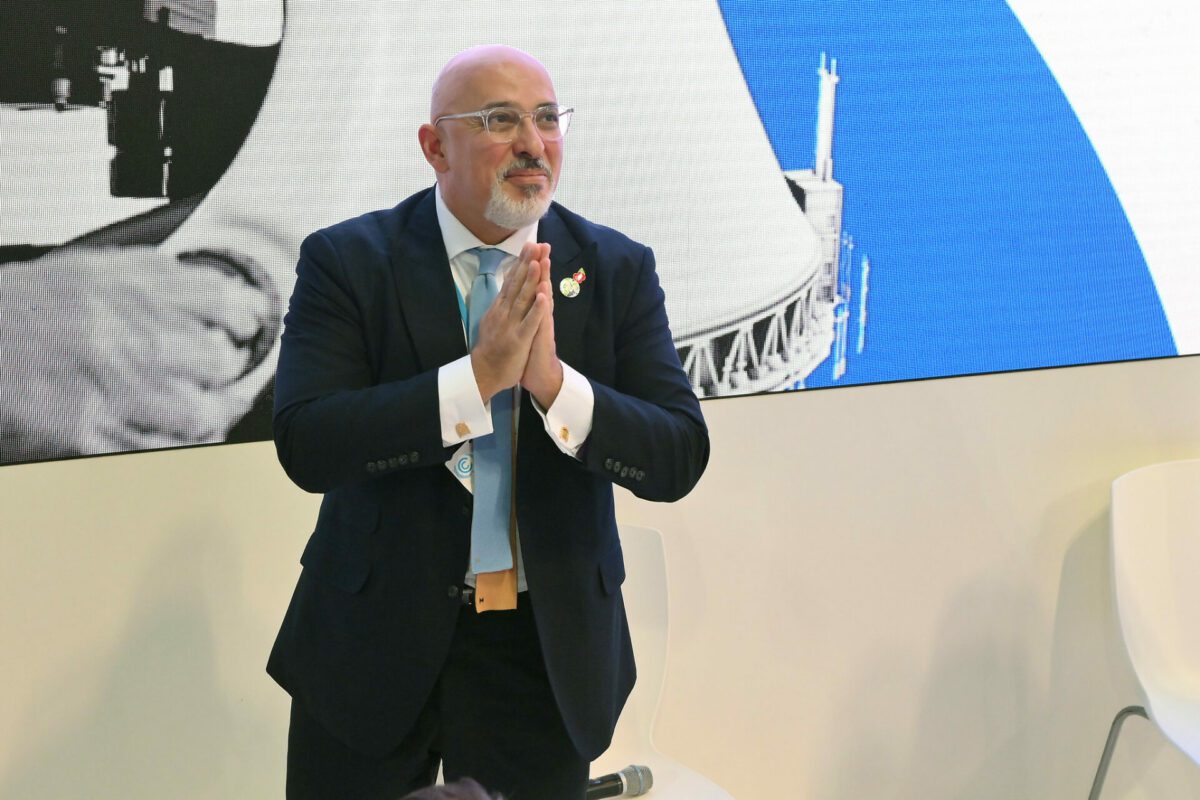UK government committed to achieving net zero by 2050

A net zero society: scenarios and pathways
The UK government is committed to achieving net zero by 2050, requiring a reduction in UK net greenhouse gas emissions of 100% relative to their levels in 1990. Achieving net zero will be as much a societal challenge as it is a technical one. Societal norms, practices and behaviours will play a significant role in emissions reduction, but these are uncertain and likely to change in the future. We can’t therefore rely on assumptions based on present trends in planning for net zero.
Project outline and objectives
This Foresight project aims to support the resilience of government net zero policies by understanding how different social and behavioural changes will affect our path to net zero. This will help inform the government’s long-term net zero strategy, enable stress-testing of policies and assumptions against plausible societal futures, and support more effective and resilient policy.
The project will achieve this by providing the evidence and tools to help understand how behaviours could impact net zero. It will examine trend data on behaviours that drive energy demand and emissions, explore how they may change in the future, and then develop holistic socio-technical scenarios that consider potential impacts of changes in both society and technology. This will help explore critical inter-dependencies, trade-offs, and indirect effects of potential shifts in different pathways to net zero.
Project outputs
This project will produce several core outputs, including an expert evidence review, a set of future scenarios exploring different assumptions of future societal and behavioural change, and modelling to quantify implications of each scenario for the energy system and for different groups within society. The final report will present these findings along with the likely trade-offs and spill-over effects of each scenario. We will also develop a guide on how to use these outputs for policy teams in government.
This project is due to run until late 2022 when the final report is published.
Science and innovation critical to climate change solutions

9th Nov 2021: Science and Innovation Day at #COP26 sees the announcement of new initiatives backed by global coalitions of nations, businesses and scientists.
These will support the implementation of the goals announced during the World Leaders Summit and other country commitments announced during the first week of the conference.
Government Chief Scientific Adviser Sir Patrick Vallance will underline the critical role of science and innovation in enabling every country to access the tools it needs to immediately reduce emissions in line with Paris temperature targets, and to adapt to the effects of climate change that we are already seeing.
These initiatives include:
- new commitments to accelerate innovation and low carbon transitions in industry and cities
- new global Adaptation Research Alliance to increase the resilience of vulnerable communities on the frontline of climate change
- independent experts to track progress against the Breakthrough Agenda announced by world leaders on 2 November, advising on action and collaboration
- global scientific research community to produce annual climate risk assessment to ensure the dangers are fully understood by world leaders
Mission Innovation, a coalition of 23 governments (covering 95% of global public investment in clean technology, research and development) will announce 4 new ‘innovation missions’ in which countries will work together to accelerate the development of clean technologies for cities, industry, carbon dioxide removal, and the production of renewable fuels, chemicals, and materials. Mission Innovation’s ‘innovation missions’ now cover sectors responsible for more than 50% of global emissions.
The Adaptation Research Alliance (ARA) – a global first – launches today (9th Nov 2021). This network of over 90 organisations across 30 economies will see governments, research institutions and communities collaborate to increase the resilience of vulnerable communities on the frontline of climate change.
A new landmark programme putting the ARA’s work into practice is the Climate Adaptation and Resilience research programme (CLARE), jointly funded by the UK and Canada. Today the UK announces a further £48 million towards CLARE, bringing the total UK aid funding to £100 million, alongside £10 million from Canada to support the development of actionable solutions in communities most vulnerable to climate change and extreme weather events. £40 million of the UK’s contribution will be focused on Africa, and in total the programme is set to benefit at least 5 million people around the world.
To support implementation of the Breakthrough Agenda announced by World Leaders on 2 November, a new ‘Global Checkpoint Process’ will seek to sustain and strengthen international cooperation in each of the emitting sectors. Independent experts led by the International Energy Agency (IEA), together with the International Renewable Energy Agency (IRENA) and the UN High Level Climate Action Champions will produce an annual report to track progress and advise on action. Informed by this advice, countries will discuss how they can work together to make faster progress.
A group of leading international scientific organisations will make a new commitment to improve the way we assess and communicate climate risk to inform the decisions of world leaders. The coalition, including, amongst others, the World Meteorological Organisation and the World Climate Research Programme, will work to ensure that research and reports for policymakers set out clearly for world leaders the full scale of the dangers we will face if global temperature increase is not held below 1.5 degrees.
Other announcements on Science and Innovation Day include:
Under the Industrial Deep Decarbonisation Initiative (IDDI) the UK, India, Germany, Canada and UAE will work together to create new markets for low carbon steel and concrete. The IDDI launched today a campaign where member governments, including the UK, commit to the disclosure of embodied carbon of major public construction by no later than 2025, they also pledged to achieve net zero in major public construction steel and concrete by 2050, and to work towards an emission reduction for 2030 to be announced next year.
Building on the success of the Futures We Want collaboration, the UK COP26 Presidency, in partnership with Italy, is establishing a new global partnership to leverage the power of science and innovation to address key challenges blocking the path to a climate-resilient, net-zero future. This new partnership will bring together countries from across the world to pool scientific expertise and develop new ways to bring citizen voices into policy making, by running a series of region-led projects to tackle specific net-zero challenges.
47 countries (including Malawi, Spain, Morocco and the US) have committed to building health systems which are able to withstand the impacts of climate change and which are low carbon and sustainable. These include 42 countries, representing over a third of global health care emissions, which have committed to develop a sustainable, low-carbon health system. 12 of these 42 countries have set a deadline of 2050 or earlier, by which their health system will reach Net Zero.
Patrick Vallance UK Chief Scientific Adviser said:
The facts are clear: we must limit warming to 1.5C. Thanks to science, that is feasible – the technologies are already available. Investment in research and development will deliver new clean technologies, while policies to create markets will ensure they are deployed. At the same time, science will help us adapt to the impacts of climate change we’re already seeing around the world and transform our economies. Through research and innovation, we will adjust essential systems and ensure continued safety, security and prosperity.
Patrick Child, Chair of Mission Innovation and Deputy Director-General for Research and Innovation at European Commission said:
Clean energy solutions must be cost-effective at scale and available everywhere if we are going to reach net zero. We must invest in innovation now to scale up these vital technologies and avoid a climate disaster. International collaboration sits at the heart of this, and Mission Innovation provides a vital platform for world governments to drive action and investment in the technologies which will save our planet.
Jesse De Maria Kinney, Head of Secretariat for Adaptation Research Alliance (ARA) said:
Climate adaptation requires evidence-based solutions that are tailored to local contexts. The formal launch of the ARA highlights a growing global movement supporting this approach among funders, researchers, policymakers and communities and our collective commitment to driving a paradigm shift in the adaptation community where solutions are co-produced, action oriented and lead to positive changes in people’s lives.
Anne-Marie Trevelyan, COP26 Champion on Adaptation and Resilience said:
Action-focused research is crucial to effective, inclusive and sustainable climate adaptation, particularly to protect the most vulnerable communities from the impacts of climate change. We will ensure women’s voices shape these conversations, and women’s leadership and expertise are championed to deliver gender-sensitive adaptation solutions. Both the Adaptation Research Alliance and the UK’s support for the Climate Adaptation and Resilience research programme will improve the effectiveness of adaptation, putting people at the heart of climate research to build the resilience of those living on the frontline of the climate crisis.
Science Minister George Freeman, Science Minister said:
Real change to combat climate change cannot happen without new scientific ideas, innovation and research, and it is clear that no country or company acting in isolation can deliver the change that is needed at the pace that is needed.
As an innovation nation, we want to lead the global effort to have every country, organisation and business contribute to this agenda by encouraging new ideas and products. That is why, for example, we have launched new commitments to enhance international innovation cooperation and ensure we meet our climate goals.
The scale of the challenge we face is daunting, but there is room for optimism, and I look forward to working together to unleash a new wave of innovation to build a cleaner, better, and more prosperous world.











Responses